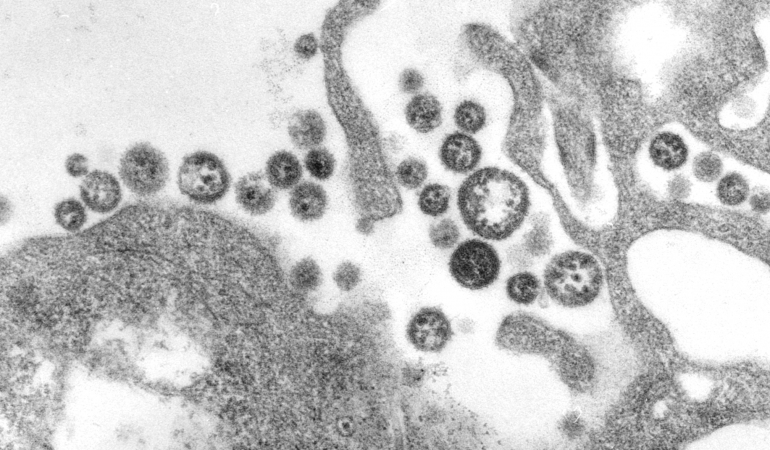
Two Dutch doctors working in a hospital in Sierra Leone have been infected with the Lassa virus. The doctors were probably infected during treatment of the same patient. They were repatriated to the Netherlands with two special flights. The first patient was treated in strict isolation at the LUMC Leiden University Medical Center. He passed away on 23 November. The second doctor was treated in the Major Incident Hospital, which is a separate unit located within the Utrecht University Medical Center. She recovered and was released from hospital after 2,5 weeks admission.
Contact research
The risk of people infecting each other with Lassa fever is small, but the disease can take a serious course. That is why the Municipal Public Health Services and RIVM made an inventory of people who had been in contact with these patients during their disease. These people (so-called contacts) were monitored for three weeks by taking their temperature twice daily and reporting any medical complaints. If they would develop symptoms, arrangements were in place in order to determine quickly whether they could have Lassa fever. People are only considered contagious when they display symptoms that could possibly be ascribed to a Lassa virus infection. Because of this early detection and monitoring of contacts, there was little chance that the virus would spread in the Netherlands. None of these contacts have been diagnosed with Lassa fever. Several other Dutch health care providers, as well as some British and German nationals, working in the Sierra Leone hospital who had contact with the patients with Lassa fever, have also been repatriated via a special flight.
Lassa fever
The disease is caused by Lassa virus. This virus occurs mainly in parts of West Africa. Certain rat species can spread the virus through their urine and droppings. In addition, the virus can sometimes spread from person to person. Most people do not develop any symptoms after infection, but a minority of those infected display serious symptoms requiring admission. Of those developing serious disease about one in seven cases may result in a lethal outcome.
Lassa fever is a notifiable disease group ‘A’, a group of diseases for which the risk and consequences of spread are considered very serious and for which RIVM coordinates the control measures. Several Dutch University Medical Centers (UMCs) are prepared for the admission, screening and specialised care of patients who may have Lassa fever. If Lassa fever is suspected, patients are taken to one of these UMCs for examination, diagnosis and treatment in specialized isolation units with dedicated staff.